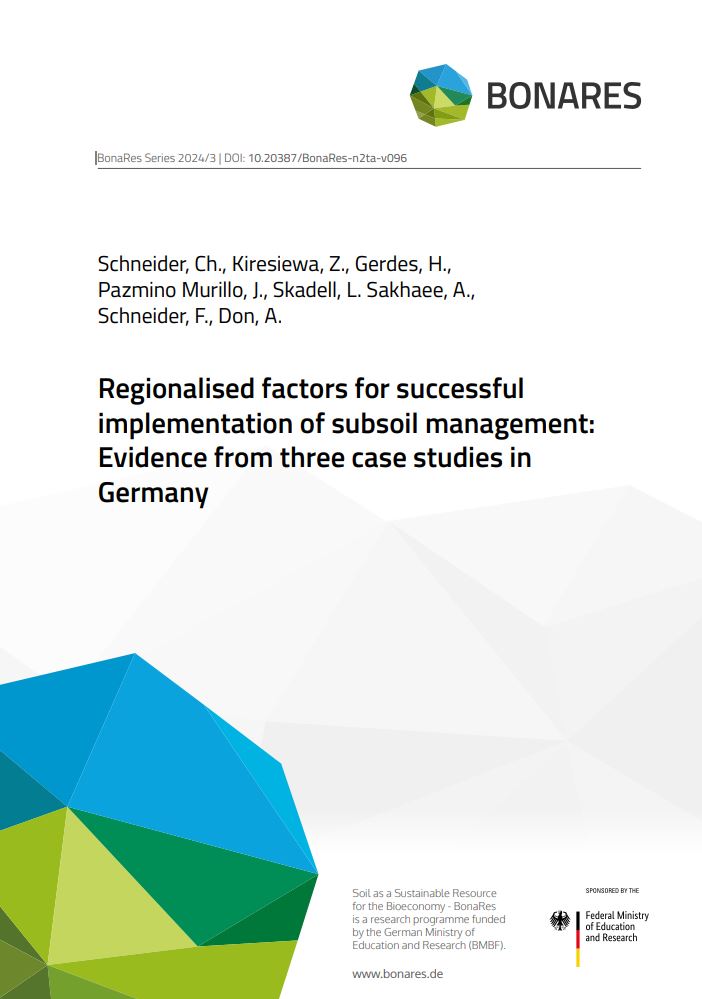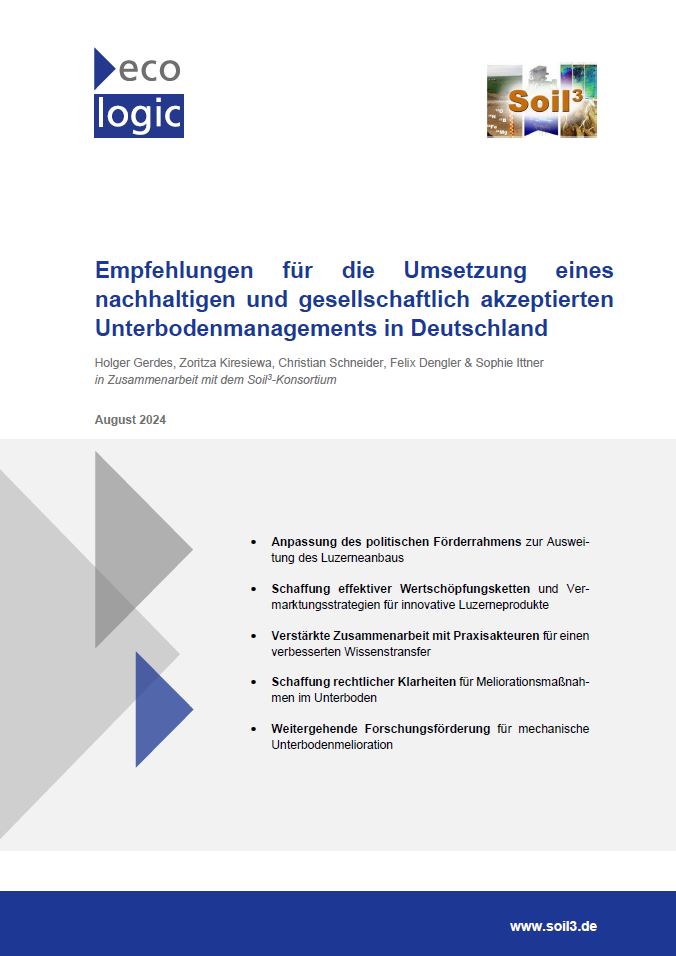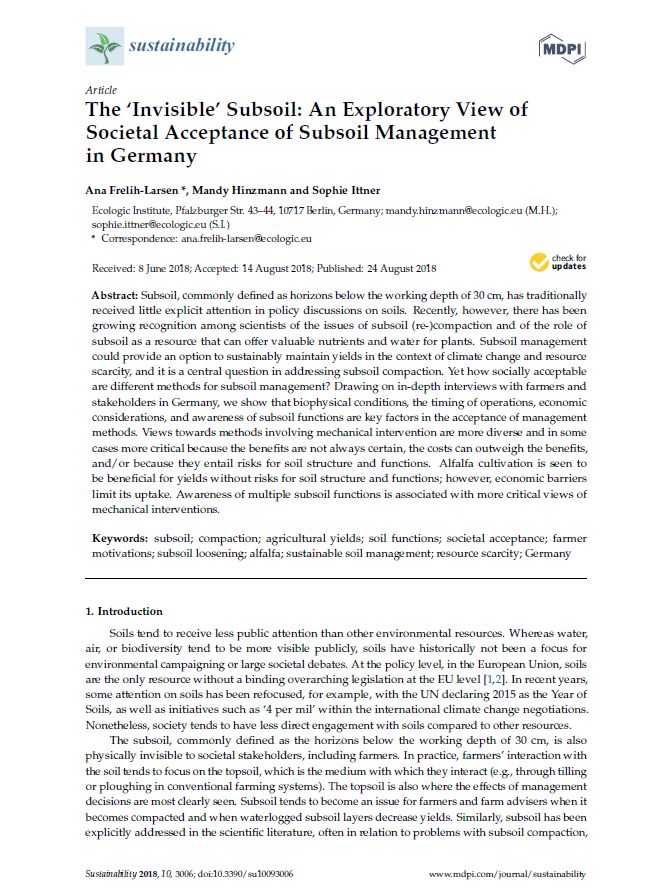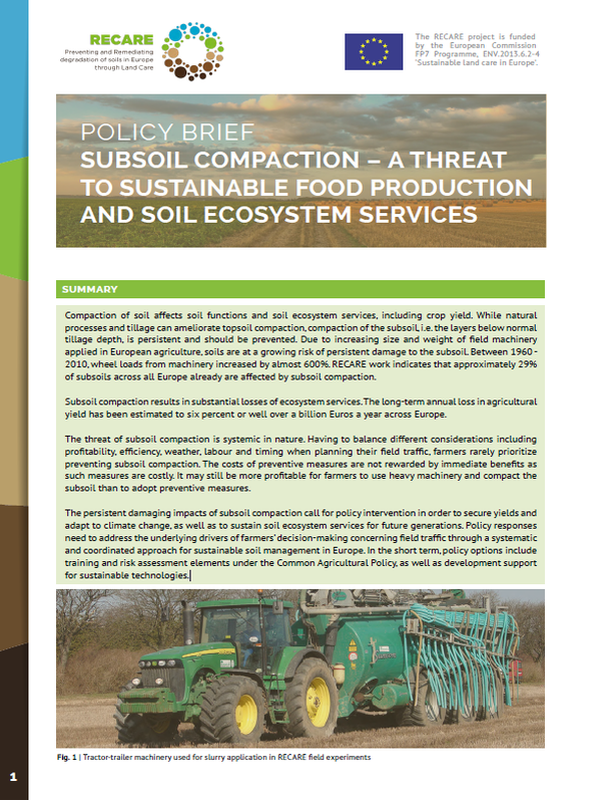
© BONARES, 2022
The Impact of Subsoil Management on the Delivery of Ecosystem Services
An economic valuation for Germany
- Publication
- Citation
Ittner, S., Gerdes, H., Kiresiewa, Z. (2022). The impact of subsoil management on the delivery of ecosystem services: An economic valuation for Germany. BonaRes Series. https://doi.org/10.20387/BonaRes-WVC6-YJ14
How does subsoil management affect the provision of ecosystem services – and what is its economic value to society? These questions are at the heart of a study by Sophie Ittner, Holger Gerdes and Zoritza Kiresiewa from Ecologic Institute. Using a Benefit Transfer approach, the authors assess the societal costs and benefits of two subsoil management practices in German agriculture. The results demonstrate that sustainable subsoil management can generate not only ecological, but also substantial economic value – offering important insights for targeted support through agri-environmental policy.
Subsoil – An Underestimated Lever in Sustainable Bioeconomy
Subsoil is gaining attention as a key but often overlooked resource in sustainable agriculture. It holds substantial reserves of water, carbon, and nutrients and can thus contribute to stabilising yields—particularly under climate-induced drought stress. This study, conducted by Sophie Ittner, Holger Gerdes and Zoritza Kiresiewa from Ecologic Institute within the BonaRes – Soil as a Sustainable Resource for the Bioeconomy programme, evaluates the societal costs and benefits of two subsoil management approaches: mechanical deep loosening with compost incorporation (DLC) and biological amelioration using deep-rooting pre-crops such as alfalfa.
Monetary Valuation Reveals Hidden Societal Gains
The research applies a Benefit Transfer method, using existing valuation studies to monetise marginal changes in the delivery of soil-related ecosystem services (ESS) under the two management scenarios. Key services assessed include food provision, water retention, carbon storage, nutrient filtering, soil biology and nutrient cycling. The findings are compelling: mechanical subsoil management increases ESS delivery by 54%, and biological amelioration by 23%, compared to conventional practice. The additional annual value of improved ESS is estimated at nearly €3.2 billion for DLC and €800 million for biological practices, respectively.
Regional Perspectives for Policy Guidance
The analysis also considers regional variations in soil suitability and drought stress indicators across Germany. Mechanical subsoil amelioration shows the greatest potential in Northeastern regions like Brandenburg, while biological methods perform best in Central and Southern regions such as Bavaria. These regional insights offer a concrete basis for designing spatially differentiated agri-environmental policies and incentive schemes aligned with local soil characteristics and climate resilience needs.
Economic Insights for Sustainable Soil Policy
Although subject to uncertainties inherent in any Benefit Transfer exercise, the study provides a rare, large-scale quantification of the economic value of soil ecosystem services in agriculture. It highlights trade-offs such as increased nutrient cycling versus potential nitrogen leaching, and calls for further site-specific research. Nonetheless, the study offers a transparent, scalable framework for integrating soil functions into policy planning – from agenda setting to implementation of sustainable soil management strategies.








